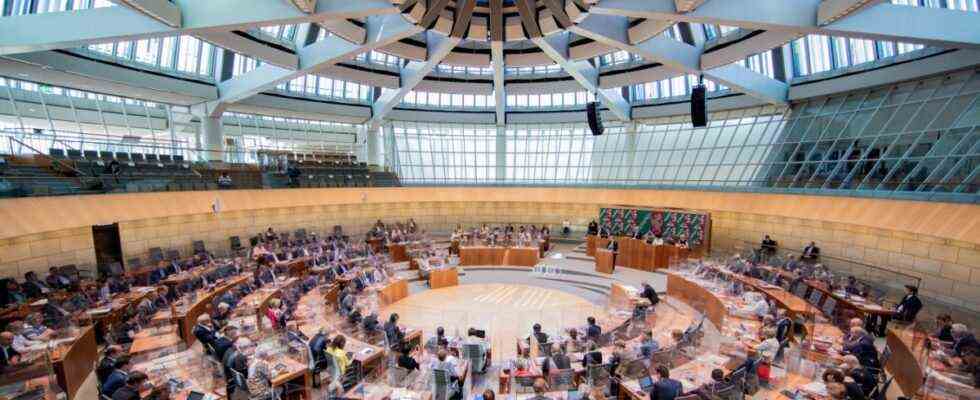The WDR Broadcasting Council is a mixed bag, and it should be: politicians and trade unionists belong to the 60-strong body, representatives of the economy and members of various religious communities. “The Broadcasting Council represents the interests of the general public as the supervisory authority in the WDR”, as the broadcaster puts it. This means that he passes these interests on to the directorship of the broadcaster and advises and controls them on program matters. From December onwards, the Association of Large Families Germany (KRFD) will also be responsible for this supervision. An organization that works for families with three or more children. As one of five groups that are each allowed to send a new representative to the Broadcasting Council. This is what the North Rhine-Westphalian state parliament decided one evening at the end of June with a two-thirds majority. According to the agenda: “Without debate”. But it comes now.
Raffelhüschen denies knowing the association at all
There has been a lot of discussion in Düsseldorf now, since one Report of the Mirror, accordingly three members of the KRFD advisory board represent arch-conservative positions. Specifically, there is the social scientist Manfred Spieker, who is a member of the Catholic organization Opus Dei and who has described homosexuality as “hostile to life”. Population scientist Herwig Birg, who once appeared at a federal party conference of the AfD. And the economist Bernd Raffelhüschen, who has called for higher pension insurance contributions for childless and one-child families.
Raffelhüschen, however, at the request of the SZ, denies knowing the KRFD association at all, let alone being a member of its scientific advisory board. Birg was a member of the advisory board, but he tells the SZ that he ended his membership on Monday evening at the request of the association chairman. Spieker was still on the advisory board on Tuesday, but says the SZ that he felt “provoked to smile” at the portrayal that the association was extremely conservative.
It is undisputed that 15 organizations applied for one of the five vacant seats in the Broadcasting Council. The government factions of the CDU and FDP agreed on an election proposal with the opposition SPD and the Greens. As a result, for example, KRFD and the tenants’ association will soon each be able to send a representative to the WDR committee; the child protection association or the association of fire brigades go away empty-handed.
According to the CDU, the association with large families never attracted attention with its extreme positions
Prime Minister Laschet’s CDU is now defending itself against the representation that it has heaved an allegedly right-wing organization into the Broadcasting Council. Rather, in the previous election to the media commission, there were not enough applicants for the body that watches over private broadcasting in North Rhine-Westphalia. The CDU wanted to prevent a place in the WDR Broadcasting Council from remaining vacant if there were again too few applicants, says a spokesman for the CDU parliamentary group. The association of large families has already participated in several expert hearings in the state parliament; he was never noticed with extreme positions.
In the upcoming federal election campaign, the CDU wants to counteract the impression that its candidate for Chancellor Armin Laschet had direct influence on the cast of the WDR Broadcasting Council. A message from the KRFD shows that the top of the association met Nathanael Liminski, the head of the North Rhine-Westphalian State Chancellery, in 2017. But neither Laschet nor Liminski were involved in bringing about the joint election proposal, emphasized a spokesman for the state chancellery.
The Association of Large Families emphasizes that it is non-partisan and non-denominational. In this year alone, around 1200 questions from families who got into emotional, economic or financial hardship in the corona crisis have been answered. “The allegations hit us very hard,” says a spokeswoman, “because they completely contradict our mission statement, our self-image and they contradict our daily work.”
The SPD parliamentary group emphasizes that it did not know that the KRFD should maintain relations with Opus Dei and the AfD. “If that were the case, it would be very questionable,” says media policy spokesman Alexander Vogt. The Greens also put it this way, the CDU had insisted that the association of large families be part of the common list – just as one has campaigned for the tenants’ association. Now it depends on who exactly the KRFD sends to the broadcasting council, says Oliver Keymis, media policy spokesman for the Greens: “We expect the Association of Large Families to nominate a person who represents the liberal values of a diverse society.”

